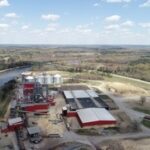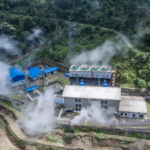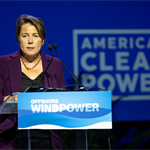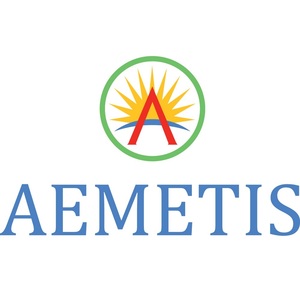UK seeks BECCS projects that can deploy by mid-2020s
Energy Disrupter
ADVERTISEMENT
The U.K. government on Aug. 24 announced it is now accepting submissions from power bioenergy with carbon capture and storage (BECCS) projects that want to take part in Track-1 of its carbon, capture, usage and storage (CCUS) sequencing process.
The announcement is related to the government’s Net Zero Strategy, which, in part, outlined the role that engineered greenhouse gas removal (GGR) technologies would need to play in reaching the U.K.’s goal to achieve net-zero emissions by 2050. According to the U.K. Department for Business, Energy and Industrial Strategy, GGR technologies are needed to balance residual emissions from hard to decarbonize sectors. The Net Zero Strategy specifically noted that BECCS applications in the power sector could be deployed by the late 2020s.
The U.K. government’s Cluster Sequencing Process, launched in May 2021, aims to deliver at least two CCS clusters by the mid-2020s and four clusters by 2030. The BEIS earlier this month announce a Phase-2 shortlist of power CCUS, CCUS-enabled hydrogen, and industrial carbon capture (ICC) projects that will proceed to the next stage of due diligence. With its Aug. 24 announcement, the BEIS is now inviting BECCS plants to complete the project submission to join the Track-1 shortlist for consideration for first-of-a-kind (FOAK) power BECCS business model support.
The BEIS opened a public consultation to explore commercial frameworks sustainable for incentivizing the deployment of FOAK BECCS on Aug. 11. The consultation seeks views on how the government can help attract private investment to accelerate the development of BECSS, to help boost Britain’s energy security, while also supporting new job opportunities. As part of that effort, the consultation seeks input on the government’s early proposals, including main design elements of the business model across electricity generation, payment terms, carbon capture and biomass sustainability and negative emissions requirements. The consultation is open through Oct. 7.
The call for submissions issued on Aug. 24 specifies that power BECCS projects that can deploy on Track-1 timescales are eligible to apply. Track-1 projects aim to be operational in the mid-2020s.
The BEIS in late 2021 confirmed that two Track-1 clusters, the Hynet and East Coast Clusters, are already moving forward. The East Coast Cluster is made up of the Zero Carbon Humber and Net Zero Teesside projects. Together those industrial clusters made up 50 percent of the U.K.’s industrial emissions. Drax’s BECCS project is an anchor project for Zero Carbon Humber.
Additional information is available on the BEIS website.
















